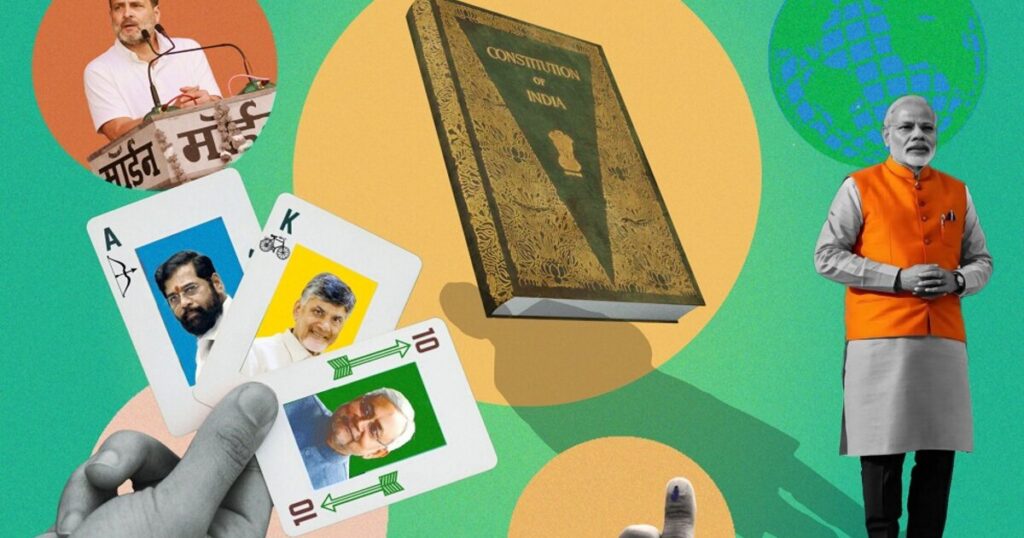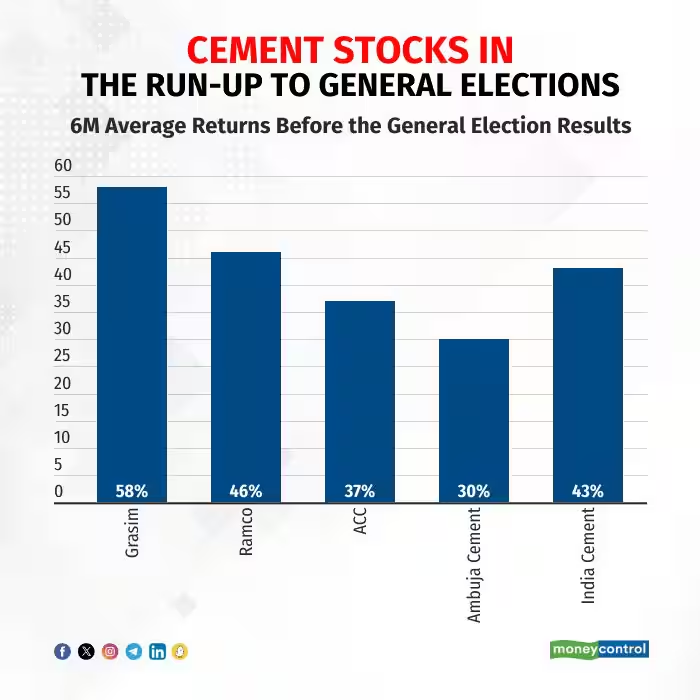🗳️ How Will the 2025 General Elections Impact Your Investments?
The 2025 General Elections are not just a political event—they are a major economic milestone that can shake or steady the Indian markets. Whether you’re a salaried employee, small business owner, or a first-time investor, understanding how elections influence investments is crucial to safeguarding and growing your wealth.
Let’s explore how political uncertainty and post-election policy changes can affect your portfolio—and what you can do about it.

📉 How Do Elections Typically Affect the Indian Stock Market?
Historically, Indian stock markets have shown volatility in the months leading up to general elections due to uncertainty over who will form the government. Once results are announced, markets tend to react positively or negatively depending on the perceived business-friendliness and stability of the incoming government.
📊 Historical Trends:
- 2004 Elections: The markets crashed 11% in a single day when a coalition change created policy fears.
- 2014 Elections: A BJP majority led to a 20% rally over the next few months as investors anticipated reforms.
- 2019 Elections: Markets surged after NDA’s return, continuing the bullish trend.
🔎 According to a study by IIM Ahmedabad (2021), elections lead to heightened short-term volatility but have limited long-term negative impact if economic fundamentals are strong.
🏦 Which Sectors Are Most Affected During Elections?
Certain sectors are more sensitive to political shifts and policy changes than others.
📈 Likely Beneficiaries (If Stability Prevails):
- Infrastructure & Capital Goods (due to spending promises)
- Banking & Finance (if reform-friendly policies continue)
- PSUs (based on disinvestment and privatization moves)
⚠️ Vulnerable Sectors:
- Pharma (affected by regulatory uncertainty)
- Oil & Gas (due to subsidy policies)
- Telecom (depending on spectrum policies)
💡 How Should the Common Man React?
Most investors tend to overreact or try to time the market around elections. This often leads to poor decisions like selling too early or buying at inflated prices.
✅ Do This:
- Continue your SIPs regularly
- Maintain a diversified portfolio (equity, debt, gold)
- Keep a 3–5 year perspective
❌ Avoid This:
- Panic-selling due to short-term volatility
- Betting on a single political outcome
- Investing based on social media hype

🧠 The Psychology of Investing During Elections
The uncertainty of elections often leads to “noise trading”—when people react to rumors or poll predictions. This is dangerous, especially for retail investors, who often lack access to reliable information.
🧾 According to a 2023 SEBI survey, 62% of retail investors make investment decisions based on media headlines during election years.
🇮🇳 What if There’s a Coalition Government?
A fractured mandate or coalition government could delay policy-making and create a short-term dip in market confidence. However, India has seen successful coalition periods (e.g., 1999–2004), so investors shouldn’t fear paralysis.
Key Tip: Look at the fiscal discipline, economic agenda, and ministerial appointments—not just party names.
🛡️ How to Election-Proof Your Portfolio
- Review Asset Allocation
Ensure you have exposure to low-correlation assets like gold or debt funds. - Avoid New High-Risk Investments
Delay investing in speculative IPOs or small-cap stocks until after the election dust settles. - Use the Volatility
Election-time dips can offer good buying opportunities if you pick fundamentally strong stocks.
📅 Timeline to Watch in 2025
| Month | What to Expect |
|---|---|
| January – March | Increased volatility, pre-election rallies or jitters |
| April – May | Election campaigns, market nervousness |
| May – June | Election results; potential for sharp market moves |
| Post-June | Market stabilizes, reforms get clearer |
🧾 Academic & Research References
- Bhattacharya, Utpal. “Market Reactions to Political Events in India”, NSE Working Paper (2019)
- IIM Ahmedabad, “Electoral Outcomes and Equity Markets in India”, Journal of Emerging Market Finance (2021)
- SEBI Investor Survey 2023
- RBI Bulletin, “Macroeconomic Stability During Electoral Cycles”, Vol. 75, Issue 4 (2022)
- Economic Times Archives – General Election Market Reactions (2004, 2014, 2019)
✅ Conclusion: Stay Calm, Stay Invested
The Indian General Elections of 2025 will undoubtedly cause short-term market movement, but long-term investors should focus on economic fundamentals rather than political drama. Elections come and go, but your financial goals remain.
🧘♂️ As Warren Buffett says, “The stock market is designed to transfer money from the active to the patient.”
Read More:https://wealthfitlife.com/best-tax-saving-strategies-under-new-old-regime-in-fy-2025-26/
❓ FAQs
- Will the market crash after the 2025 elections?
Not necessarily. If the result is stable and pro-reform, markets may rise. - Should I stop my SIPs during the elections?
No. Continue your SIPs to benefit from rupee-cost averaging. - Is it a good time to buy gold before elections?
Yes, gold can act as a hedge against market volatility. - Will mutual fund returns be affected by elections?
Possibly in the short term, but long-term performance depends on the fund’s fundamentals. - Which is safer: equity or debt during elections?
Debt is generally more stable, but equities offer long-term growth. Balance both. - Should I wait until after elections to invest lump sum?
If the market is too volatile, consider a Systematic Transfer Plan (STP) instead. - Do foreign investors pull out money during elections?
Some may, due to uncertainty. But many return once results are clear. - What sectors should I avoid during election time?
High-regulation sectors like telecom, oil & gas may be more sensitive. - Can a change in government impact tax-saving schemes?
Major schemes like PPF, NPS, and ELSS are unlikely to be scrapped, but new policies may emerge. - Is investing in PSU stocks risky during elections?
PSU stocks are policy-sensitive. If the ruling party supports disinvestment, these may benefit.
